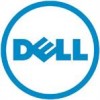Dell External OEMR 2970 User Guide - Page 52
and A=Administrator. Use is a very general statement about the actions that can be performed using
 |
View all Dell External OEMR 2970 manuals
Add to My Manuals
Save this manual to your list of manuals |
Page 52 highlights
Table 4-1 is a high-level summary of the omconfig command. The columns titled "Command level 2" and "Command level 3" list the major arguments that can be used with omconfig. "User privilege required" refers to the type of privilege you need to perform the command, where U=User, P=Power User, and A=Administrator. "Use" is a very general statement about the actions that can be performed using omconfig. More details about syntax and use of the command appear later in this section. Table 4-1. omconfig Command Level 1, Level 2, and Level 3 Command level 1 omconfig Command Command level 2 level 3 User privilege Use required about U, P, A details=true U, P, A preferences cdvformat A dirservice A snmp A useraccess A system alertaction P, A alertlog P, A assetinfo P, A cmdlog P, A esmlog P, A events P, A pedestinations P, A Shows version number and properties for the Server Administrator program. Displays information for all of the Server Administrator programs that are installed. Specifies the delimiter for separating data fields reported in custom delimited format (cdv). Configures the Active Directory service. Sets the SNMP root password. Configures SNMP Set Operations. Determines whether users below the administrator level are allowed to use Server Administrator or not. Determines in advance what actions are to be taken for warning or failure events on intrusion, fans, temperatures, voltages, power supplies, memory, and redundancy. Allows the administrator to clear the log. Enters and edits cost of ownership information for your system, including values for depreciation, lease, maintenance, service, and support. Allows the administrator to clear the log. Allows the administrator to clear the log. Enables and disables SNMP traps. Sets IP addresses for alert destinations. 52 omconfig: Managing Components Using the Instrumentation Service















